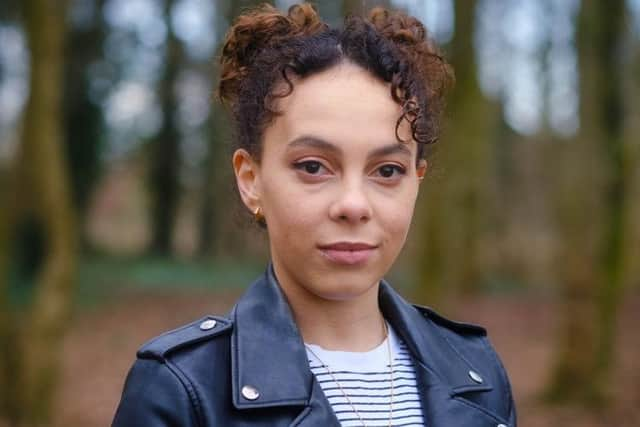Opinion: Doncaster woman shares her thoughts on the Police, Crime, Sentencing and Courts Bill
and live on Freeview channel 276
All over the nation, in cities such as London, Cardiff, Leeds and Manchester, protests (mainly led by Sisters Uncut) have broken out screaming “Kill the Bill” in objection of the governments latest
legislature, the Police, Crime, Sentencing and Courts Bill.Initially, brought in as a Covid-19 precautionary measure that would allow the police more ‘power’ to govern lockdown breakers, the bill is set to permanently allow the police to use excessive force in whichever way they deem appropriate.


Advertisement
Hide AdAdvertisement
Hide AdOn face value this may seem a necessary tactic, however, concerns have grown as more information regarding the bill has become public and there seems to be a lack of coverage
from major national news outlets.
One of the biggest concerns is the influence the bill would have on peaceful protests moving forward.The European Court of Human rights states that the right to freedom of assembly, much like the right to freedom of expression, is a fundamental human right in democratic society that
must be closely guarded.It is not something to be rushed through the administration during a pandemic.The home secretary has additionally reserved the right to veto peaceful protests that she does not deem necessary.Not only does it negate the lived experiences of those who don’t come from the same viewpoint as her, but it also sanctions the targeting or stifling specific protesters.We have already seen this play out, in the last year, in the treatment of Nurses, Union members, BLM Protesters, Climate Change Protesters and Women. Similarly, restrictions on time
and noise levels of peaceful protests, create challenges to what a protest fundamentally is; strength of voices together.They are supposed to be loud and evoke emotion in others.
Advertisement
Hide AdAdvertisement
Hide AdTo take away such a key characteristic would undermine the purpose of a protest.It becomes clear that the aim is to discourage protest organisers through creating fear of unintentionally breaking the law, facing crippling fines or prison sentences that grossly outweigh the crimes. Despite this, the protests still continue, demonstrating that what we won’t see is a decrease in protesters attempting to protect their civil liberties.We will, however, see an increased risk of violence as state and revolution collide.
The bill itself is vague at best, stating that the police can arrest a person for ‘annoyance’ or ‘serious disruption to the life of the community’ but this relies heavily on the officers interpretation
of the law.It is no secret that public relations with the Police have become increasingly contentious over the last year. In the wake of footage of PC Oliver Banfield assaulting a woman on her way home, the officer charged with Sarah Everard’s murder being reported for indecent exposure merely a week before her attack and GOV.UK’s 2019/20 damning report that black people are still disproportionately nine times more likely to face a Stop and Search than their white counterparts; concerns of dangerous ‘over policing’ are at the forefront of the minds of those who wish to contest it.
The UK has such a rich history of protests that have shaped democracy as we know it from the Peasants Revolt in 1381 to the suffragettes movement in the early 1900’s, from the civil rights
Advertisement
Hide AdAdvertisement
Hide Admovements in the 1960’s and the Miners Strikes in the 1980’s.The bravery from those in the most marginalised communities forced the powers that be to see them and to address their own pitfalls.Without them many of us would not be in the positions we are today.However, not all of their issues intersected, what was an agitation for one was did not impact the other.What we’re starting to see now, is an overlap in movements.Last year, Black Lives Matter protestors spoke out about police brutality and the ramifications it was having on black communities.This year women, some of whom abstained from supporting the BLM protests, felt differently when they saw themselves reflected in the women being brutalised.That’s not to point fingers, “I told you so” is an agent of division when solidarity is key in moments like these.In the space of the year, one demographic completely changed its stance on a political issue, the bill would a permanent change to the law.If you found yourself or your family directly affected by an institutional shift, you should have the right to speak up about it without fear of excessive force.
The bill would also have a huge impact on the Roma, Gypsy and Traveller communities and their way of life; as police would legally be able to seize their vehicles leaving them homeless, break up
‘unauthorised encampments’ and could see the implementation of ‘travellers passports’ to help separate them from the rest of the population. When the French and American governments
suggested a similar system with muslim citizens, comparisons were made to the passports jewish natives were forced to carry in 1930’s Germany, those same comparisons are being made now.
Advertisement
Hide AdAdvertisement
Hide AdOur government frequently and publicly expresses concerns about the protection of Human Rights in other countries but does not appear to be extending those same concerns to its own
nationals.
So whilst the current socio-economic climate might be perfectly suited to your needs, what will you do when it isn’t?The right to protest is a protected human right and to take it away is the start of a very slippery slope.Even if you feel the current government is logical and rational future administrations may not be, having such ambiguous and easily manipulated legislature a part of our constitution is the gateway to a totalitarian state.In order to avoid that, we must Kill the Bill.